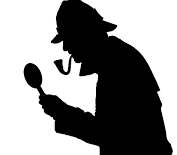"Just So Crazy" - What Words Do You Overuse?
/I recently took a story to critique group, and after the discussion, I realized I had used certain words like "just" and "little dog" way too many times. I can't tell you how many times I read through my work. I didn't catch them. My fellow writers used "just," "so," and "crazy" so many times that became the meeting mantra.
Create a list of your overused words and phrases and use your search feature to find them. Most of the time, they can be eliminated or changed to another word that improves your writing. Also search for "was/were" and other "be" verbs. Many of these sentences can be restructured with stronger, action verbs. Look at all of your adverbs ("-ly" words). Most of these can be cut.
I'm southern, and I do this a lot. Remove prepositions after verbs (e.g. jump up, click on, or open up). It should be jump, click, or open.
Here's my list. What would you add to it?
- Absolutely
- Completely
- Etc.
- Finally
- Get
- Got
- Just
- Literally
- Really
- So
- Some
- That
- There
- Totally
- Very





















